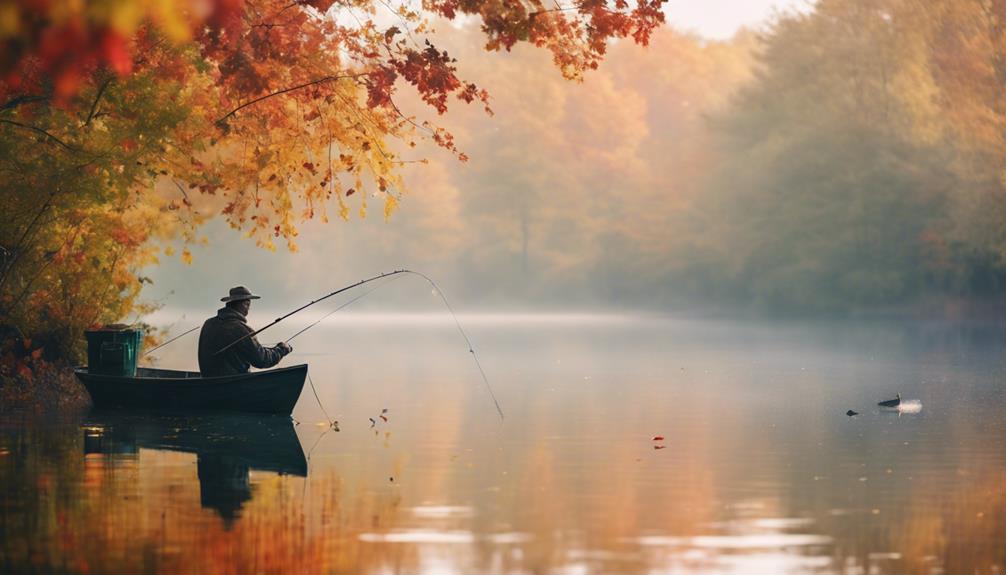Fishing is a beloved pastime for many, providing relaxation, adventure, and a connection to nature. However, before you cast your line, it’s essential to know the regulations surrounding fishing licenses. This guide will answer the question, “When do you need a fishing license?” while providing valuable information on the requirements and exceptions that apply across different regions.
Understanding Fishing Licenses
A fishing license is a legal requirement that allows individuals to fish in various bodies of water, including rivers, lakes, and oceans. The primary purpose of a fishing license is to regulate fish populations and ensure sustainable practices. Each state or country has its own set of rules regarding fishing licenses, including age requirements, types of licenses, and specific fishing seasons. Understanding these regulations is crucial to ensure compliance and contribute to conservation efforts.
Types of Fishing Licenses
When discussing when you need a fishing license, it’s important to recognize that there are different types of licenses available. Most jurisdictions offer both resident and non-resident fishing licenses. Resident licenses are typically less expensive and are available to individuals who live in the area for a certain period. Non-resident licenses are for those who are visiting and wish to fish temporarily. Additionally, some regions provide special licenses for specific types of fishing, such as saltwater or freshwater licenses, as well as temporary or one-day licenses for casual anglers.
Age Requirements for Fishing Licenses
In many areas, age plays a significant role in determining whether you need a fishing license. Often, children under a certain age (commonly 16 or 18) are exempt from needing a license when fishing under the supervision of an adult. However, there may be restrictions on the number of fish they can catch or specific waters where they are allowed to fish. Always check local regulations to see if there are any age exemptions or additional requirements for young anglers.
Fishing License Exemptions
There are instances where you might not need a fishing license, even if you’re an adult. Many states offer free fishing days, typically held during the summer months, when residents can fish without a license. Additionally, some areas may allow fishing without a license in specific waters or for certain types of fish. For example, some jurisdictions allow fishing for catfish or trout in designated ponds without requiring a license. Always check local guidelines to identify any exemptions that apply to your situation.
How to Obtain a Fishing License
Obtaining a fishing license is generally a straightforward process. Most states allow you to purchase a license online, over the phone, or in person at designated locations, such as sporting goods stores or government offices. Online applications provide convenience and often allow for immediate access to your license. When applying, you’ll typically need to provide personal information, including your name, address, and date of birth, along with the type of license you wish to obtain. Be prepared to pay a fee, which varies based on the type of license and your residency status.
Consequences of Fishing Without a License
Fishing without a license can lead to serious consequences. Most jurisdictions enforce fishing regulations strictly, and being caught fishing without a license can result in hefty fines, confiscation of fishing equipment, or even legal action. Additionally, fishing without a license undermines conservation efforts and can contribute to overfishing, impacting fish populations for future generations. Therefore, it’s crucial to ensure you have the proper licensing before heading out on your fishing adventure.
Understanding Local Fishing Regulations
Knowing when you need a fishing license is just one aspect of responsible fishing. Each region has specific fishing regulations that dictate when and where you can fish. These regulations may include limits on the size and number of fish you can catch, specific fishing seasons for different species, and designated fishing areas. Familiarizing yourself with local fishing regulations will not only keep you compliant but also help you have a successful fishing experience. Websites of local fish and wildlife agencies often provide valuable resources and updates regarding fishing regulations.
Conclusion: Stay Informed and Compliant
In conclusion, understanding when you need a fishing license is essential for anyone looking to enjoy this recreational activity legally and responsibly. By familiarizing yourself with the types of licenses available, age requirements, exemptions, and local regulations, you can ensure a hassle-free fishing experience. Remember to check your local guidelines before heading out to fish, and always carry your fishing license with you. By staying informed and compliant, you’ll not only enhance your fishing trips but also contribute to sustainable fishing practices that protect our aquatic ecosystems for future generations. Happy fishing!
